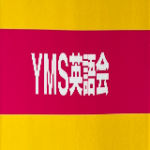
With interest being practically nonexistent in Japanese banks, you might find yourself wondering what to do with your hard earned yen. One option would obviously be to use it, live the good life and enjoy all Japan has to offer. If your long-term goals are to eventually return home, or long term is just not your style, then I am sure you don’t need to look far to find places to spend money in Japan. The other option however is investment.
Unlike most countries however, property investment is not appealing in Japan due to the long term devaluation of residential homes. Thus, the option is playing the stock market. If you are like me however, the thought of trying to play with stocks, in a foreign language to boot, seems like a lot of extra work and risk. If only there was a way to put my money somewhere that is guaranteed to at the very least outpace inflation. Well, we’re in luck! Add in tax free benefits and you are looking at the Japanese investment scheme called NISA.
NISA, short for Nippon Individual Savings Account, is essentially a scheme by the Japanese government that aims to make long time investment appealing to the masses, but offering a tax exemption safety net, in a setup and forget system. People from the UK may be familiar with the idea, as NISA is based on the UK’s own ISA. The idea and aims of the scheme are twofold, first to increase the amount of money available to people in Japan in their retirement years, and second, to reduce the amount of cash sitting in Japanese banks doing nothing. All residents of Japan, including non-Japanese nationals over the age of 20, are eligible to partake in the system.
Let’s take a further look at what exactly NISA is and does, and help decide whether or not it is the correct course for you.
Am I eligible to use the NISA program?
If you hold a Japanese Visa with a residence status (that is not a tourism or other non-residence visa), and are over 20 years of age, you may participate in the program. You do not need to hold Japanese citizenship. Furthermore, you can only take advantage of NISA once.

How does the tax exemption work?
Usually when investing in stocks, one must pay taxes on any earnt dividends or profits from the buying and selling of stocks. When investing under NISA, for a five-year period all applicable taxes are waived, up to a ceiling of 1 million yen. Therefore, as long as the stocks perform, you will be better off than simple bank interest rates.
How many accounts can I open?
The program only allows for one account.
How much can I invest?
NISA allows for investments of up to 1.2 million yen per year. As the program runs for five years, you can effectively invest 6 million yen tax free.
Can I choose any stock?
Under NISA, you must choose pre-approved stocks, ETFs, and trusts. Bonds are not a permitted form of investment under NISA. As NISA is intended as a mid-term, safe investment option, high risk and foreign stocks are not included, and such investment would need to be undertaken outside the scheme. Furthermore, the Japanese government incentive is to get money out of private bank accounts, and into the Japanese economy, therefore it only makes sense that they would see that investment placed into Japanese stocks.
Where can I setup a NISA account?
A NISA account can be opened at securities firms or banks. Somewhat easier to manage however is through online banks such as Rakuten. The following link will take you there, but you will need to navigate it in Japanese. There appears to be no English services online for setting up a NISA account.
Is it hard to open a NISA account as a foreigner?
As hinted at in the last question, the hardest part is the need for strong Japanese and Kanji understanding. It seems that many securities firms will deny you outright simply for non-perfect Japanese language skills. Rakuten will not deny you for being a foreigner, so if you can navigate the application process successfully you will be ok. Having said that, account management will all be in Japanese, so proceed according to your own confidence with the language.
It is possibly to set up your stock choices, and a fixed monthly deposit, effectively creating a setup and forget system. In this manner, once you have it setup, your level of Japanese language will no longer be a matter for consideration.
Can I leave the scheme early?
You are free to leave NISA and withdraw all funds at any time. The only stipulation is you cannot then invest this same money during the remaining period.
To summarize, NISA is a mid-term investment scheme that helps make investment more attractive to residents in Japan. Anyone with a residence status, 20 years or older can partake. The scheme is certainly a better option that leaving your money in a Japanese bank, but more active and informed people could potentially do better on the open stock market. If you are looking for a stress-free way to keep your savings ahead of inflation at the very least, NISA is a good option for foreigners in Japan, presuming you can navigate the initial account setup stages.
I hope you have found this article informative, and that it might help you with long-term living in Japan.















